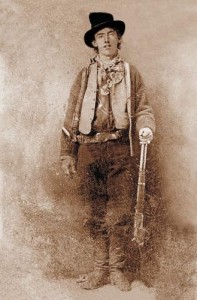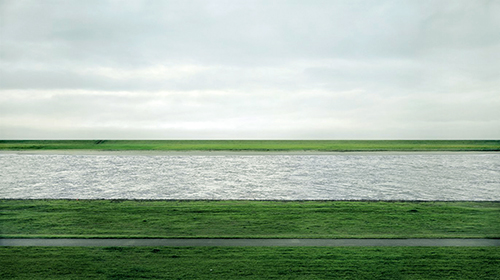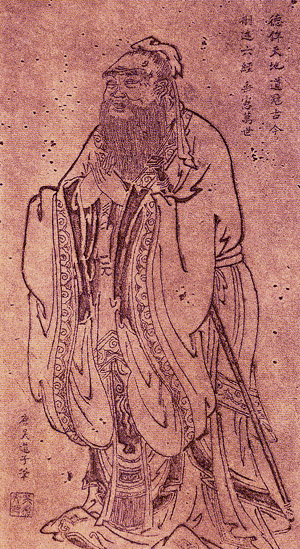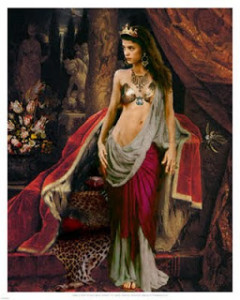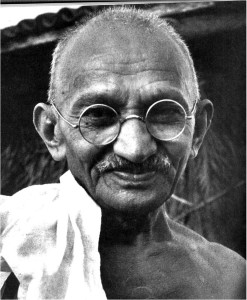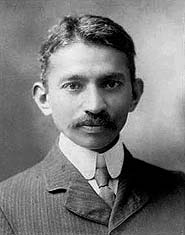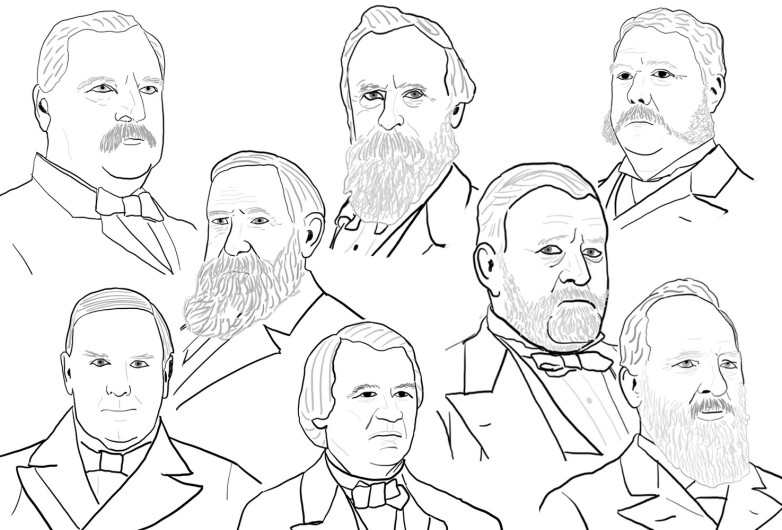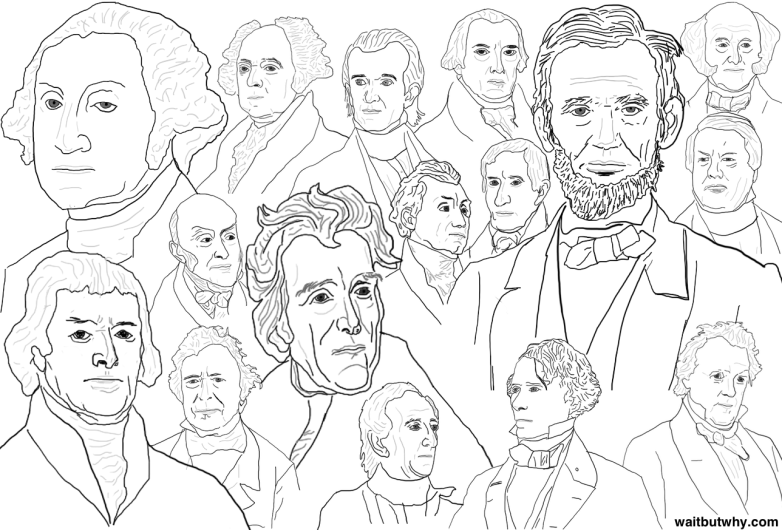Billy the Kid
Lived: 1859 – 1881
In 11 words: Lost, unfortunate boy who did dumb things and became an outlaw
His main thing: So I knew very little about Billy the Kid going into this. He barely qualified for Zone 2. And when I searched for images of him, this is what I found, which made me happy I don’t have to interact with him in my life. And I assumed that as I read about him, I’d learn about all of his famous duels and gun feats and bank robberies and sheriff murders. I thought I was going to be learning about one of those “Most feared outlaws in the Wild West” characters.
Turns out that’s not really his story at all. He was born in Manhattan (six blocks from my apartment), raised by a (mostly) single mom who moved him and his brother around the country, eventually landing in the West before she died when William (Billy) was 14. And the thing is, he was a good kid. A hotel owner he worked for said William was the only employee who never stole anything from him, and his schoolteacher later said he was as well-behaved as anyone else. But as an orphan, life got tough, and when he committed a few petty thefts, he ended up in jail. Scared, he escaped up a chimney, and from then on he was a fugitive.
He continued getting honest jobs, but ended up as part of a gang war and became the scapegoat the New Mexico government used to show the public they were seeking justice. The governor placed a $500 bounty on his head, which made him famous. While others involved in the same gang war were left alone or granted amnesty, Billy the Kid (as he was now known) was too well-known and received a death sentence. He again made off and ran for a while, but he finally was shot and killed (at age 21) by a sheriff who hunted him down.
It’s not that he did nothing wrong—he killed eight people in his life—it’s that most of his killing and running and hiding were out of fear, self-defense, and the result of a downward spiral he never really wanted to be in—he’s basically the world’s most famous troubled teenager. And his epic fame is pretty random—he could have easily been a nobody in history, but the way things played out, he became a notorious outlaw back then and his legend only grew after his death. There’s also a small chance that everyone besides me already knows this stuff and I was mixing him up with Wild Bill Hickok.
In any case, that above photo is supposedly the only authentic image of Billy the Kid, and the original fetched $2.3 million at a 2011 auction, which I learned was the 7th most expensive photograph ever sold. This led me to go find a list of the other most expensive photos, and #1, which clocks in at a $4.3 million sale price, was this incredibly unimpressive photo, taken by a still-living German photographer in 1999.
My confusion about this is staggering. I would pay between $0.00 and $0.75 for that photo, depending on my mood.
2014 equivalent: Justin Bieber
Galileo
Lived: 1564 – 1642
In 11 words: Rare giant of scientific advancement fighting against hopelessly-backward Catholic Church
His main thing: Einstein called Galileo “the father of modern science,” which sums things up pretty nicely. Galileo made major discoveries about the motion of planets and stars, the motion of uniformly accelerated objects (i.e. that two objects would fall at the same rate regardless of their masses), sound frequency, and the basic principle of relativity, among other things—and major advancements in technology, including inventing or improving upon the telescope, microscope, thermometer, pendulum, and the compass. His work was central to most future developments in science, including those of Newton and Einstein, and most of what he discovered was in contradiction with conventional wisdom—his work was as shocking and revolutionary in the 1600s as Einstein proclaiming that “time is relative” was in the 1900s.
But the most impressive part about Galileo, other than his ability to make such a cranky facial expression in the above painting, is that he did everything he did in the face of threats and repression by the Catholic Church and their inane loathing of groundbreaking scientific advancements. The main thing the Church kept yelling at Galileo for was his backing and advancement of Copernicus’s heliocentric model of the universe, which puts the sun, instead of the Earth, in the center of the solar system and suggests that the Earth’s spinning is why the sun appears to revolve around the Earth. The Church declared heliocentrism to be “foolish and absurd in philosophy, and formally heretical since it explicitly contradicts in many places the sense of Holy Scripture”1 —in particular, the parts of scripture that said things like, “the world is firmly established, it cannot be moved” and “the Lord set the earth on its foundations; it can never be moved”2 —and ordered Galileo “to abstain completely from teaching or defending this doctrine and opinion or from discussing it… to abandon completely… the opinion that the sun stands still at the center of the world and the earth moves, and henceforth not to hold, teach, or defend it in any way whatever, either orally or in writing.”3 That would be like modern-day governments imprisoning geologists who studied ancient rocks because their findings conflicted with the Bible’s accounts of the Great Flood. Or like preventing gay people from getting married because of passages in the Bible about sexual orientation. Thankfully, those times are over.
So the Church repressed the greatest genius of the century, finding him “vehemently suspect of heresy,” and placed him under house arrest for the rest of his life. Luckily, Galileo just hung out on his couch and kept doing his thing, publishing some of his most important works while under house arrest.
Other things:
- Galileo never married, having all three of his children out of wedlock with the same woman.
- One of the reasons Galileo started inventing things (like the telescope) in the first place was that he badly needed money to deal with all the money his starving artist little brother kept “borrowing” from him.
- He was briefly a professor at the University of Pisa, but he was inappropriate with his students and the university didn’t renew his contract.
- Despite his conflicts with the Church, Galileo was a devout Catholic. He briefly became a priest before his father convinced him to go into medicine, and his two daughters were nuns. But he was critical of the Church’s repression of science, stating, “Holy Writ was intended to teach men how to go to Heaven, not how the heavens go.”
- One of Galileo’s worst offenses against the Church was creating a character called Simplico in his famous book Dialogue Concerning the Two Chief World Systems, who always presented the old, incorrect, geocentric view. Simplico suggests “simpleton” in Italian just like it does in English, and in the book, Simplico does not come off very well. The issue is that a lot of what Simplico says in the book were well known to be the direct views of the Pope (Urban VIII), indirectly insulting the Pope and hastening Galileo’s path toward house arrest.
- It wasn’t until 200 years later in 1835 that the Church finally stopped its prohibition of books advocating heliocentrism and not until 1992 that the Vatican officially cleared Galileo’s name of any wrongdoing.
- It should be noted that Galileo’s church difficulties occurred in the heart of the Renaissance. You can only imagine what it was like to be a scientist in the far more repressive Middle Ages (and how much potential scientific advancement was stifled).
- Some weirdo cut the middle finger off of Galileo’s corpse a century after his death, and it is currently on display at the Museo Galileo in Florence.
- Galileo’s dad begrudgingly allowed him to leave medicine in favor of mathematics and died a few years later when Galileo was an amateur math professor—he had no idea his son was anything special, let alone “the Father of Modern Science.”
2014 equivalent: Elon Musk
Confucius
Lived: 551 – 479 BC
In 11 words: Ancient Chinese philosopher who really wanted everyone to be less douchey
His main thing: Confucius was born into a middle class family and his dad died when he was three, assuming his three-year-old was just a shitty little three-year-old and not the great Confucius. After reading about Confucius for the last few hours, I can sum up his philosophy as “Don’t be a dick.” He didn’t like corruption, classism, or cruelty, and when a leader he was working for went on a three-day prostitution binge one time, Confucius soon stopped working for him. Way before we had The Golden Rule, Confucius came up with his own, similar version: “Do not do to others what you do not want done to yourself.” i.e. Don’t be a dick.
Confucius believed that every human was at the center of a number of concentric circles. In the middle was the self, around it the family, around that was society, then the nation, the world, and beyond—and everything radiated outwards. So it started with you giving love to your family members, which then would turn into families projecting love outwards into society in the form of kindness. He rejected the importance of class, and accepted people into his school based on merit, completely ignoring their social standing, which was a totally radical concept at the time.
By the age of 50, he had developed a large following through his teachings, and this caught the attention of China’s leaders. He was appointed first as the governor of a small state and then as the Minister of Crime. Supposedly, under his reign in that role, crime dropped considerably as he used his post to spread his moral teachings. But his radical philosophies about not being a huge douche proved too extreme for the leadership, and they released him just a few years later, sending him into 15 years of wandering exile.
He was granted return to his home as an old man and spent his last few years where he grew up, using this time to teach 75 disciples and complete some of his written works. He died thinking he was a failure because everyone was still a dick—but through his disciples, his work was organized into an elaborate set of rules and practices after his death, which had an incredible lasting impact on future Chinese dynasties and is still a part of how Chinese culture is wired today.
Other things:
- When I look at his above visual depiction, I just want to be him, and I’m sad I can’t be. Imagine looking like that.
- In spite of his generally modern, humane way of thinking, he had some weird exceptions—like proclaiming that men and women should walk on opposite sides of the street.
- He had children, which means that Confucius had sex, which is a weird concept.
- Confucianism isn’t particularly religious, drawing very little from the divine. Instead, Confucius focused on the teachings of old wise men from the past. Which is also weird—because Confucius is kind of the oldest, wisest person. There aren’t supposed to be older, wiser people than Confucius.
- China has traced his descendants down for centuries and it continues in modern times. There’s even a Confucius Genealogy Compilation Committee, which says he has 2 million known, registered descendants and that there are an estimated 3 million in all—this is the longest recorded family tree in the world, now in its 83rd generation.
- Recently, there was a proposed project to DNA test supposed male descendants of Confucius—if the male chain were truly unbroken as people believe it to be, they’d all share a common Y chromosome as their direct male ancestor. But then they were like, “Actually wait no don’t do that” because they realized there was more downside than upside—there’s a decent chance they’d find out that none of the people who think they’re Confucius’ descendants actually are, which would really take the wind out of everybody’s sails since the whole thing has enormous cultural significance.
2014 equivalent: The Dalai Lama
Cleopatra
Lived: 69 – 30 BC
In 11 words: Cunning leader but wrong time to be pharaoh—Rome takes over.
Her main thing: Her father was the pharaoh, and when Cleopatra was 14, he made her his co-ruler and groomed her to be a future ruler of Egypt. Upon his death in 51 BC, 18-year-old Cleopatra and her 10-year-old brother, Ptolemy XIII, became the kingdom’s new co-rulers (following Egyptian custom, they were also married—which Cleopatra must have been thrilled about since every 18-year-old girl’s dream catch is her 10-year-old brother). It turns out that neither of these teenagers was that into sharing the spotlight, and three years later they were in a full battle to be the sole pharaoh. Ptolemy XIII won the battle and Cleopatra was forced to flee into exile.
Julius Caesar’s rival Pompey came to Egypt to seek assistance from new middle-school ruler Ptolemy XIII, and the assistance Ptolemy gave him was to behead him so he could impress Caesar. When Caesar arrived a bit later, Ptolemy was like, “Look at what I did to Pompey high five,” but Caesar was like “Why did you do that you little shit he’s my granddaughter’s father” and Ptolemy was like, “fuck.” But Ptolemy knew the real key was that Caesar never meet his hot older sister, which would ruin everything—so he kept her locked away and guarded. Except the guards were unimpressive people and didn’t notice when Cleopatra rolled herself up in a rug and had someone bring her to Caesar that way.
It was Christmas for creepy 52-year-old Caesar when Cleopatra, 21, emerged from the rug and seduced him, and this was the end for Ptolemy XIII, as Caesar’s army placed Cleopatra back on the throne. Ptolemy had a tantrum and tried to rebel, but he embarrassingly drowned in the Nile instead, leaving Cleopatra as the undisputed ruler. Less than a year later, Cleopatra bore (what she insisted was) Caesar’s child, adorably named Caesarian, which means “Little Caesar.”
Then Caesar was assassinated, throwing everything into chaos.
Rome was suddenly in civil war, and when Octavian and Mark Antony’s team came out on top, Antony called Cleopatra to meet with him to answer for her lack of support during the war. He was being all serious and stern about this, and it took her like 1.5 seconds when they finally met to make him her puppy. They formed an alliance and went on to have three kids.
A bunch of years later, Cleopatra and Mark Antony ended up at odds with Octavian, fought him, lost, and Cleopatra faked her own death, causing Antony to react calmly and reasonably by stabbing himself in the stomach. Cleopatra then asked Octavian if he was gonna be a dick about things now that he had won, and he said yes, so she annoyed a cobra until it finally bit her and she died.
Other things:
- Go look at that picture of her above. I want her to look like that. You want her to look like that. We all just really want Cleopatra to be a hot person. Then, in 2007, everyone was devastated when this coin from 32 BC was discovered, suggesting that she actually looked like Jay Leno:

The world then agreed to pretend this never happened. - She was into cosmetics and wrote a book detailing remedies for things like hair loss and dandruff. She also apparently bathed in milk every day to stay young-looking.
- Like Alexander the Great (who thought maybe just maybe Zeus was his dad), Cleopatra (and her followers) thought she was divine, as the reincarnation of the goddess Isis.
- She wasn’t Egyptian. When Alexander the Great conquered Egypt 300 years earlier, he installed his general, Ptolemy, as the pharaoh, and Cleopatra was his direct descendant. She was also Cleopatra VII—there were six others before her, likely named after Alexander the Great’s sister, Cleopatra of Macedon.
- Her family situation was not healthy—well before she was exiled by her 13-year-old brother-spouse, her father had her older sister executed when she tried to set up a coup against him. Then later, after her husband-brother drowned, Cleopatra married her other younger brother before deciding to actually poison him to death instead. Then she executed her sister “just cause.” She went on to co-rule the kingdom with her pre-pubescent son, who was strangled to death on Octavian’s orders after Cleopatra committed suicide. Normal.
- One thing I realized during this post: someone born in 55 BC who died in 35 AD (at the age of 90) would have witnessed the rise and fall of Julius Caesar, the reign of Augustus and founding of the Roman Empire, Cleopatra’s whole reign and the fall of Egypt to Rome, and the birth, life, and crucifixion of Jesus.
2014 equivalent: Kim Jong Un (some imagination required here)
Mahatma Gandhi
Lived: 1869 – 1948
In 11 words: Much, much, much, much, much, much, much better person than you
His main thing: Nothing will make you realize how much everyone sucks more than reading about Gandhi for a few hours. You can look at it as all of us being normal and Gandhi being an exceptionally good person, or you can look at it like I did—Gandhi is just kind of normal and rational and literally everyone else is a horrible, low, greedy, petty, selfish, uncompassionate, ego-driven, short-sighted piece of shit. We’re all animals, sorry. And he’s a one-man intelligent species.
Even the other people you’d consider to be great—Martin Luther King, Nelson Mandela, the Dalai Lama—each one of them can be quoted calling Gandhi their role model. They were just doing their best to imitate Gandhi.
I’m sure I’ll calm down about this tomorrow, but this is how I feel right now.
Anyway, here’s his story:
He grew up in a merchant family and was bad at everything. He was a mediocre student, poor athlete, and he’d run home from school because “he could not bear to talk to anybody.” He then moved to London to go to Law School, and came back to India and proceeded to be an unsuccessful lawyer (he had to sit down in court once, conceding defeat, because his knees were trembling so much). He also at this time looked really different than you’re used to:
He gave up on having his own law practice and accepted a position with an Indian firm who stationed him in South Africa, where he moved with his family. After being treated like shit by the British ruling class there (he had a Rosa Parks-esque episode where he was kicked off a train for not moving to the “car for colored people”) and seeing how badly the Indian population in South Africa as a whole was treated, he decided to ditch the shirt and try to fix things, and spent the next 20 years in South Africa trying to make the white people be less terrible. He achieved a ton in his 20 years there, including helping black South Africans gain the right to vote.
He then moved to India to make the white people there be less terrible too. The British Raj (the name for their rule in India) had been going on for 57 years when Gandhi moved there and he’d spend the next 32 years slowly dismantling it until India finally gained independence in 1947. To give you a sense of how large a role he played in this, the word Gandhi comes up 44 times in the Wikipedia article about the British Raj.
His major tactic was nonviolent civil disobedience (which MLK, Mandela, the Dalai Lama, and many others emulated to achieve their goals later on)—using tricks like boycotts of British goods, hunger strikes, and marches—and he generated a vast movement which ultimately did the trick. In the process, Gandhi became an international superstar and the one person who had the love and support of nearly all factions within India, which gave him the power to majorly influence things.
When India finally succeeded at booting the British out in 1947, violent battles erupted within India between the Hindus and the Muslims, which annoyed the fuck out of Gandhi because he thought he was done but now he had to make the brown people be less terrible too. He believed that the concept of being Indian transcended race, religion, and caste, and he detested the plan to divide India in two (which would create Pakistan for the Muslim population). Gandhi was Hindu, but he stood by the Muslims during this time to protest the Hindu violence against them. This pissed off a lunatic Hindu, who shot Gandhi in the chest and killed him.
Other things:
- In typical Gandhi form, early in his life, he took the vow of poverty, never capitalizing on his power and celebrity. He spun his own clothing, walked everywhere, ate almost nothing, and died with $3 to his name. How’s your self-esteem doing over there?
- Speaking of walking, he was obsessed with it, calling it “the prince of exercises” and typically walking about ten miles a day. He attributes his top-notch health all the way into his late 70s to his walking habits. At the age of 60, he organized the famous Salt March (in protest of oppressive British salt taxes) and walked 241 miles from his home to the sea.
- His name was not Mahatma. It was Mohandas. Mahatma means “great-souled one” and was what people called him. Which he was never comfortable with.
- As you’ve probably experienced, he was a quote machine. My favorite is him being asked by a reporter what he thought of Western civilization and replying, “I think it would be a very good idea.”
- He was married at 13 and had his first child at 15, but at the age of 36, he took a vow of celibacy (as a way of confronting backward conventions relegating women to lower status), which he kept to for the rest of his life. The weirdest thing Gandhi ever did was bringing his grandniece to sleep naked in his bed with him, something he also did from time to time with other young women. He did this as part of a spiritual experiment so he could test himself and further his goal to elevate women to a higher plane, and because he’s Gandhi we’re going to give him the benefit of the doubt.
- He was pen pals with Tolstoy and Einstein.
- He came in at #2 for Time Magazine’s Person of the Century title in 1999 (Einstein was #1).
- Despite being the second most important person of the century, his parents died when he was 15 and 21, when he was still bad at everything—both believing they had raised a hapless dud. I keep mentioning this concept because it blows my mind.
- He and Mother Teresa were carried in the same carriage during their funeral processions.
- He has no relations to Indian leader Indira Gandhi or the other famous Gandhis.
- As much as Gandhi accomplished, he really only scratched the surface of the changes he wanted to make. Gandhi described himself as a “philosophical anarchist,” believing that governments were unnecessary and that rather than rights being enforced by a higher authority, each person should self-govern by mutual responsibilities and be ruled by an ethic of nonviolence. When asked to help write a world charter for human rights, he responded that he believed that it was much more important to have charter for human duties. To Gandhi, a free India required more than just transferring administrative rule from the British to the Indians—it required a total rewiring of how humans live and interact and handle conflict. Maybe if Gandhi had lived 100 more years, he could have created a shift that was that fundamental—but he didn’t, and as I explained above, the non-Gandhi part of the human race tends to be shitty, so his dream will have to wait a few hundred thousand more years until the species has caught up to him.
2014 equivalent: Nelson Mandela. And Mr. Rogers.
Note: These were 10 of about 300 people I could have chosen. There will be future volumes of this post.
Some other Wait But Why history brush-ups:
The American Presidents (Washington to Lincoln)
The Death Toll Comparison Breakdown
_______
If you like Wait But Why, sign up for our email list and we’ll send you new posts when they come out.
To support Wait But Why, visit our Patreon page.
Finocchiaro, Maurice. “History of Astronomy”. West Chester University. ESS 362 / 562. Retrieved 18 February 2014.↩
Brodrick (1965, c1964, p. 95) quoting Cardinal Bellarmine’s letter to Foscarini, dated 12 April 1615.↩
Heilbron, John L. (2005). Censorship of Astronomy in Italy after Galileo. In McMullin (2005, pp. 279–322).↩
